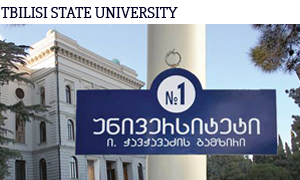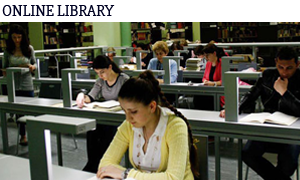
Journal Number: 6
In 2014, Nova Science Publishers issued a book entitled Laffer- Keynesian Synthesis and Macroeconomic Equilibrium by Georgian economists Iuri Ananiashvili, Professor at the TSU Faculty of Economics and Business and Head of the Department of Econometrics and Vladimer Papava, TSU Rector and Professor at the Faculty of Economics and Business. The book, consisting of four chapters, has been highly recommended by famous economists Farrokh K. Langdana, Professor at the Finance and Economics Department at Rutgers Business School; Louis H. Ederington, Professor at the University of Oklahoma, and Evgeny Balatsky, Chief Research Fellow at the Moscow Central Economics and Mathematics Institute. The book will help specialists and readers interested in general macroeconomic patterns to clarify the role of taxes in the process of economic development.
Development, economic growth and raising the standard of living in the country are all linked directly to capital market development. One of the real levers, and the most acceptable and practical forms of investment are to invest in equities through the stock market. It is clear for the developed world how important the organized stock market is. This includes Western Europe, USA, Canada, Japan, China and other countries with powerful stock industries such as the New York Stock Exchange; Euronext; NASDAQ OMX; the London Stock Exchange and many others. The mediation business or brokerage/investment firms include Merrill Lynch; Morgan Stanley; Goldman Sachs; J.P. Morgan; Barclays Capital and many other investment banks. The Georgian Investment Group + (or GIG+) is headed by Davit Aslanishvili, Assistant Professor at the Department of Finance and Banking of the TSU Faculty of Economics and Business. He serves as Chairman of Supervisory Board and has conducted many studies on the Georgian stock market, its development and current situation.
What is the role Facebook and other social networks play in Georgian political parties? How do political parties’ online activities determine their success? Which social networks are most popular with political parties?
Unlike the world’s leading countries, these issues started to arise in Georgia only a few years ago. Research on “The Role of Social Networks in Georgian Party Politics” is a social scientific study on the use of social networks in Georgian political processes, conducted in 2011-2013 and financed by the Academic Swiss Caucasus Net (ASCN) with Ivane Javakhishvili Tbilisi State University and Ilia State University as implementing partners. ASCN is a five-year program to develop humanitarian and social sciences in the South Caucasus.
Although gender balance is a concept often evoked today, in Georgia there is still a strict division of male and female duties and activities. Indeed, 86% of men and 72% of women are happy with their duties according to results of a study “Men and gender relations in Georgia”, carried out by the Institute of Social Studies and Analysis (ISSA) with the support of the United Nations Population Fund (UNFPA) in 2013. The Project Supervisor, Professor Iago Kachkachishvili pointed out that the aim of the project was to learn women’s and men’s attitudes towards gender equality--their experience and engagement in domestic chores and social practices that require coexistence and shared experience with their spouse or partner.







